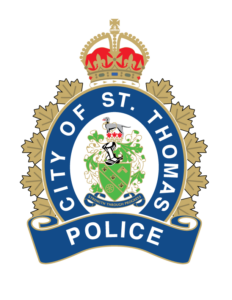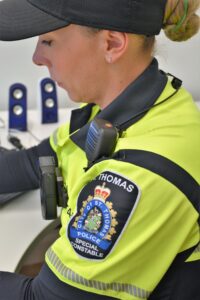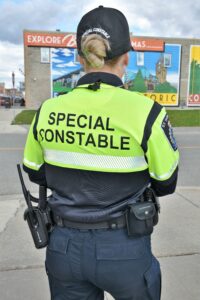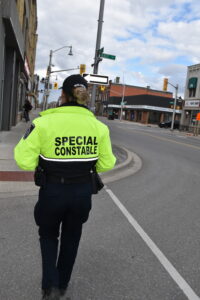
COMMUNITY RESOURCE UNIT
Background:
Community Resource Unit Model
We believe it is time to take a different approach with our Downtown Foot Patrol Unit to enhance the Service’s efficiencies and effectiveness, especially when interacting with citizens impacted by mental health, substance use disorder, homelessness and poverty in downtown St. Thomas.
Our strategy combines conventional police officers with other service providers who have limited authorities. These other service providers can include special constables, civilians, volunteers and community partners. The overall goal is to create efficiencies, free up resources for sworn members to focus on the core functions of policing, broaden our service delivery capabilities and ensure staff are not overwhelmed by non-police related incidents.
Hiring specialized civilians with a social service background results in an improved use of assets to deal with other complex activity in the community. A large percentage of the work that we now do is social related and not criminal in nature. As a result, we need to find alternative service delivery options and collaborate with agencies to better support people facing social vulnerabilities.
The Mobile Outreach and Support Team (MOST) is an example of a tiered policing partnership, where STPS and CMHA work together to deploy social workers to mental health/substance use disorder calls alongside of officers.
Many communities in western Canada utilize various cost effective policing programs including Community Peace Officers, Community Resources Officers and Special Constables, assisting sworn members in areas such as foot patrol, community service, special events, bylaw, traffic enforcement and other non-safety related incidents. The number of full-time equivalent special constables across Canada in 2019 grew by 3% over the previous year. The number of civilians working for police services continued to grow, increasing 2% in 2019.
We believe a Community Resource Officer Unit is an enhanced option potentially evolving even further to traffic enforcement related duties. Even the new Ontario Community Safety and Policing Act has identified outsourcing as an option and allowing for certain duties to be off-loaded from sworn members to special constables or civilians. Our new CRO Team members have a combination of social services and lived experience backgrounds.
Other police services have already been inquiring about this new initiative for our community.
Approval of Appointment as Special Constable
Special Constables are civilian employees that are appointed by the Police Services Board and the Ministry of the Solicitor General. The appointment of a special constable may confer on them the powers of a police officer, to the extent and for the specific purpose set out in the appointment. However, special constables shall not be employed by a police service to perform on a permanent basis, whether part-time or full-time, all the usual duties of a police officer. The special constables will have limited police officer authorities in accordance with Section 53 of the Police Services Act.
All special constables in the Community Resource Officer Unit swear an oath-of-office and undertake police/peace officer duties as set out in Section 42 of the Police Services Act, granting them powers to enforce the following legislation:
- Highway Traffic Act
- Liquor Licence Act
- Trespass to Property Act
- Provincial Offences Act
- Safe Streets Act.
Commencing in August 2022, the Community Resource Officers will be dedicated to promoting safety and security primarily in the downtown core, between 8am and 11pm Monday to Friday (weekends as needed) and will focus on:
- Discouraging antisocial behavior by being a visible, uniformed presence and engaging with citizens.
- Interacting with merchants to assist with addressing their concerns.
- Help persons facing vulnerabilities navigate social support systems.
- Responding to calls for service and investigating incidents.
- Enforcing provincial and municipal legislation.
- Conducting proactive patrols in high-need areas.
- Participating in community events.
- Conducting joint patrols with sworn members.
- Uniforms distinct from that of a traditional police officer or special constable at the Elgin County Courthouse.
- Duty belt including Handcuffs, ASP Baton, OC Spray, Police Radio and Flashlight.
- Ball Cap
- Internal Body Armour
- A Community Services van has been repurposed for the CRO Unit.https://stps.on.ca/about/community-resource-unit/


